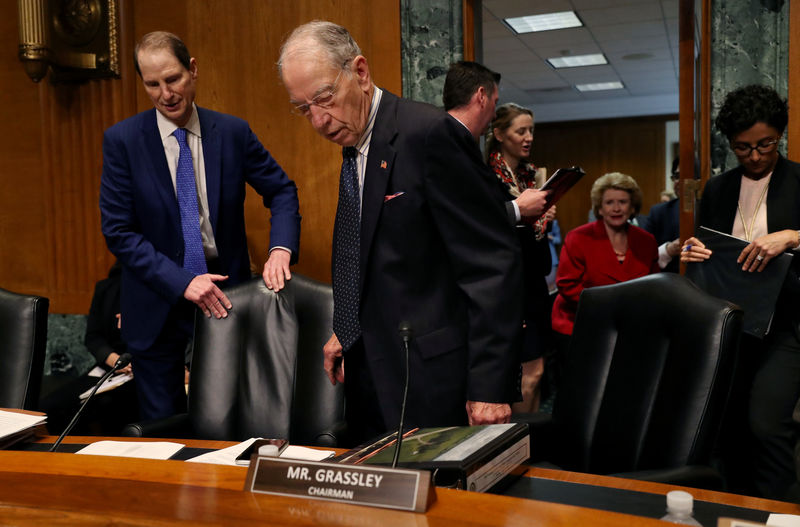WASHINGTON (Reuters) - U.S. tariffs on Chinese goods may not be enough to force Beijing to make the economic reforms demanded by the United States, but the trade barriers are the only recourse given dialogue has failed, the top U.S. trade official said on Tuesday.
The United States and China are fighting a costly trade war that has wiped over a trillion dollars from financial markets since it escalated in May, when talks between negotiators representing the world's two largest economies broke down.
Tariffs imposed by Washington and Beijing have disrupted international supply chains and slowed global economic growth over the past year.
"I don't know if it will get them to stop cheating, tariffs alone," U.S. Trade Representative Robert Lighthizer told lawmakers at a hearing of the Senate Finance Committee.
"I think you don’t have any other option. I know one thing that won’t work and that is talking to them."
U.S. President Donald Trump earlier on Tuesday said he had spoken to Chinese President Xi Jinping and that the two countries would resume talks and meet at the G20 summit in Japan later this month. That sparked a rally in some financial markets on Tuesday.
Washington wants changes from Beijing that would rewrite the terms of trade between the two countries by improving intellectual property protection, halting forced technology transfers and industrial subsidies and removing other barriers that hamper U.S. businesses in China.
Lighthizer was giving his first testimony to lawmakers since talks that he was leading for the United States broke down in May.
Even as Lighthizer was addressing the Senate committee, other officials were in the second of seven days of listening to public comments from retailers, manufacturers and others that would be affected if Trump proceeds with tariffs on another $300 billion worth of Chinese goods.
Trump has ordered Lighthizer to prepare those tariffs, and says he will impose them if the meeting with Xi yields insufficient progress on the trade disputes.
"I don't even know if we're going to have the tariffs. It's up to the president," Lighthizer said as senators probed him on the cost of tariffs to U.S. companies, farmers and consumers.
The United States already has tariffs of 25% on $250 billion worth of Chinese goods.
USMCA, JAPAN EFFORTS CONTINUE
Lighthizer also told lawmakers that the North American trade pact renegotiated by the Trump administration would yield many benefits to the U.S. economy, and described it as a "watershed development" for labor that will reduce incentives to outsource jobs.
The deal cannot pass without the support of Democratic lawmakers, who took control of the House of Representatives in the 2018 election. The Democrats have said they want to ensure labor and environmental provisions of the new United States-Mexico-Canada agreement are enforceable.
Trump's team would like to see the first major trade deal they have negotiated become law before the 2020 presidential election cycle.
Lighthizer also said that U.S. negotiators were "making headway" with Japan on a bilateral deal that would secure greater access for U.S. farmers.

U.S. trade officials will meet Japanese counterparts on the sidelines of the G20 summit, Lighthizer said.